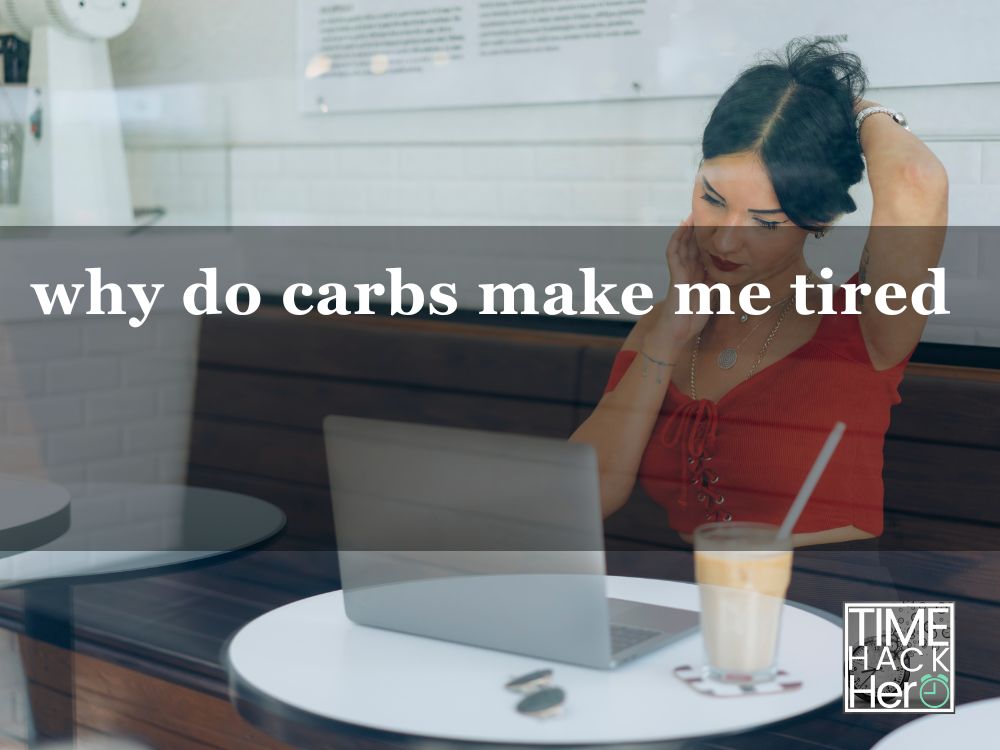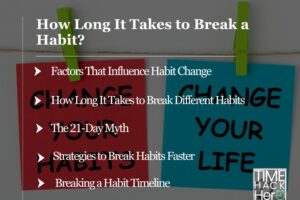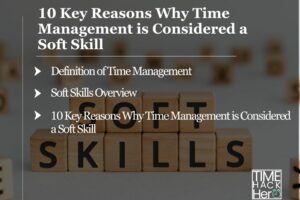Feeling sluggish and sleepy after eating a meal rich in carbohydrates is a common experience for many people. Carbs, which are found in foods like bread, pasta, rice, and sweets, provide the body with glucose, the main source of energy for cells. However, in some cases, carbs can trigger fatigue and drowsiness instead of energizing you.
So why exactly do carbs make some people tired? There are several potential reasons why carbs may lead to feelings of fatigue.
Table of Contents
Is This Normal?
Feeling a little sleepy after eating a large meal is quite common. The digestive process requires energy, so directing blood flow to the gut can make you feel tired. However, meals high in carbs and sugars may exacerbate post-meal sleepiness.
Drowsiness after eating carbs is especially common in people with conditions like:
- Pre-diabetes or diabetes: Improper blood sugar control can cause spikes and crashes in blood glucose.
- Hypoglycemia: Low blood sugar levels can lead to fatigue and lethargy.
- Insulin resistance: Cells are less sensitive to insulin, impairing glucose uptake.
- Thyroid issues: The thyroid helps regulate energy, so thyroid problems can disrupt energy levels.
So while some degree of fatigue after eating carbs is normal, ongoing tiredness or sleepiness after carb-rich meals may be a sign of an underlying issue. Consulting a doctor can help determine if there is a medical condition contributing to the problem.
How Carbs Are Used by the Body
Carbohydrates consist of sugars, starches, and fiber. During digestion, carbs are broken down into simple sugars, which enter the bloodstream.
The main sugar our bodies run on is glucose. When glucose levels rise after eating carbs, the pancreas releases a hormone called insulin. Insulin allows cells throughout the body to absorb glucose from the blood for energy.
Some glucose is stored in the liver and muscles as a molecule called glycogen. Glycogen provides us with an energy reserve that can be tapped into later.
5 Reasons Why Carbs May Make You Tired
There are several potential explanations for why carbs and sugars may trigger fatigue or drowsiness:
1. Blood Sugar Spikes and Crashes
Eating high-carb foods causes blood sugar levels to rise rapidly. In response, the body releases insulin to bring blood sugar into a normal range. However, this can cause blood sugar to drop too low, leading to hypoglycemia symptoms like fatigue, dizziness, and confusion.
This spike and crash in blood glucose is even more pronounced in people with prediabetes or diabetes who have impaired insulin response.
2. Reactive Hypoglycemia
Reactive hypoglycemia is a condition where blood glucose drops below normal within 3-4 hours after a high-carb meal. The body overproduces insulin in response to the initial spike, leading to the “crash”. Fatigue is one of the most common symptoms.
3. Tryptophan in Carbs
Carbs boost levels of an amino acid called tryptophan in the brain. Tryptophan is used to produce serotonin, a neurotransmitter that promotes feelings of relaxation and sleepiness.
4. Insulin Response
The hormone insulin promotes uptake of glucose from the bloodstream into cells. However, insulin also enhances the uptake of tryptophan into the brain. The resulting increase in serotonin can cause drowsiness.
This effect may be particularly noticeable after eating sweets or simple carbs that cause a rapid insulin spike.
5. Low Blood Sugar
Consuming lots of simple carbs and sugars can cause blood sugar to rise rapidly, triggering high insulin secretion. This can deplete blood glucose levels and lead to hypoglycemia, with fatigue as a common symptom.
Hypoglycemia may be more likely to occur if too much time passes between carb-heavy meals.
Effects of Carb-Induced Fatigue
Being tired and sluggish after eating carbs can have several undesirable effects:
- Reduced productivity and focus at work
- Difficulty concentrating and impaired cognition
- Increased errors and accidents
- Less motivation for physical activity
- Overeating and cravings for unhealthy foods
- Poor sleep quality if fatigue persists through the day
- Impaired glucose metabolism over time
Ongoing fatigue and sleepiness after carb-heavy meals may also be a subtle sign of insulin resistance or reactive hypoglycemia. Catching and addressing these issues early can prevent progression to diabetes.
Ways to Prevent Carbs From Making You Tired
There are several strategies you can try to avoid carb-related fatigue:
1. Choose Low-Glycemic Carbs
Opt for low-glycemic carbs like oats, quinoa, beans, lentils, and non-starchy veggies. These break down more slowly, preventing dramatic spikes and crashes in blood sugar.
2. Add Protein and Fat
Eating carbs alongside protein, fat, and fiber can slow digestion and maintain steady glucose levels.
3. Limit Portion Sizes
Avoid overeating carbs in one sitting, which can overload the body with glucose and insulin.
4. Stay Hydrated
Dehydration exacerbates fatigue. Drink water before and during meals.
5. Exercise
Regular activity improves insulin sensitivity and blood sugar regulation. Just taking a brief walk after eating can help.
6. Eat More Frequently
Don’t go too long without eating. Having small, frequent, balanced meals prevents hypoglycemia.
7. Get Enough Sleep
Poor or inadequate sleep exacerbates blood sugar control issues. Aim for 7-9 hours per night.
8. Minimize Stress
Managing stress through yoga, meditation, etc can stabilize blood sugar and energy levels.
9. Supplements
Substances like cinnamon, berberine, chromium, magnesium, and ALA may aid glucose control. Talk to a doctor before supplementing.
Conclusion
It’s common to feel a bit drowsy after eating a large meal. However, ongoing fatigue and sleepiness specifically after consuming carbs may be a red flag. Spikes and crashes in blood sugar from high-carb foods can promote tiredness, especially in those with prediabetes or undiagnosed insulin resistance.
Luckily, tweaks like choosing low-glycemic carbs, spacing out meals, and getting enough sleep can often prevent carb-related fatigue. Pay attention to how certain carbs affect your energy levels. See a doctor if fatigue persists so any underlying issues can be addressed. With a few dietary and lifestyle changes, you can stay energized even after meals containing carbs.
Frequently Asked Questions
What foods make you tired after eating them?
High glycemic index foods like white bread, rice, pasta, potatoes, and sweets digest quickly and can lead to carb fatigue. Foods with tryptophan like turkey, eggs, seeds, and nuts may also cause drowsiness.
Why do carbs make me crash?
Carbs get digested and raise blood sugar rapidly. In response, the body secretes a large amount of insulin, which lowers blood sugar too much, leading to fatigue, dizziness, and other symptoms. This “carb crash” is the body’s reaction to rebalance blood sugar.
Is it normal to feel tired after eating pasta?
It’s common to feel a little fatigued after eating heavy, carb-rich foods like pasta. The digestive process itself can sap energy. However, ongoing exhaustion or the need to nap after pasta could signal reactive hypoglycemia or insulin resistance.
Why do sweets make me sleepy?
Sugary foods like candy, baked goods, and desserts are digested very quickly and cause a spike in insulin. This can lead to carb crash symptoms like tiredness. Sweets may also enhance tryptophan uptake to the brain, increasing serotonin and drowsiness.
How do I stop feeling tired after eating carbs?
To prevent carb-related fatigue, opt for low-glycemic carbs, add protein/fat, exercise regularly, eat small frequent meals, drink enough fluids, get adequate sleep, manage stress, and consider supplements that support glucose control like cinnamon. See a doctor if fatigue persists.









